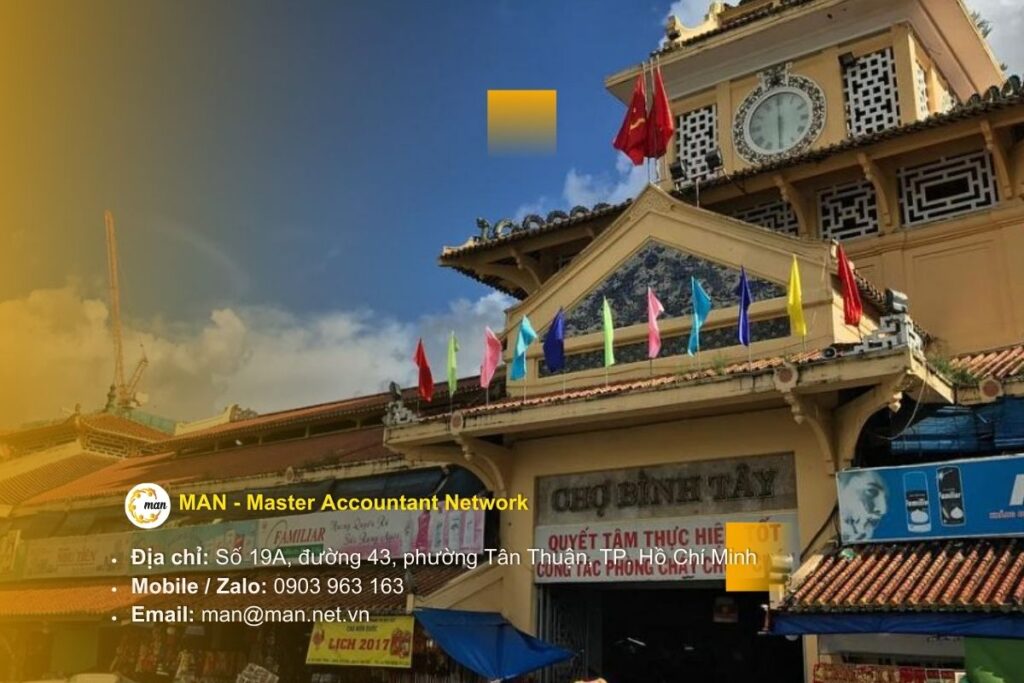Controlling interest expenses is an important provision in Decree 132/2020/ND-CP to limit the amount of interest expenses deductible when calculating corporate income tax. Accordingly, the total interest expense after deducting deposit interest and loan interest can only be deducted up to 30% EBITDA. This provision directly affects the tax obligations and financial strategies of enterprises, especially for units that have related transactions or large loans from banks.
This mechanism aims to ensure that tax obligations accurately reflect the nature of business operations, while preventing transfer pricing risks. Understanding how to calculate and apply interest expense controls not only helps businesses comply with legal regulations, but also optimizes a transparent and sustainable tax management strategy.
What is interest cost control?
Controlling interest expenses is a legal provision that limits the amount of interest expenses that can be included in deductible expenses when determining taxable income for corporate income tax. According to Decree 132/2020/ND-CP, the total net interest expense of an enterprise (after deducting deposit interest and loan interest) can only be deducted up to 30% of the total net profit from business activities plus interest expenses plus depreciation expenses (EBITDA).
With the regulation of controlling interest expenses to prevent enterprises from increasing internal borrowing for transfer pricing, reducing taxable profits and ensuring tax obligations correspond to the real value of business activities.
Legal basis for controlling interest costs
To master the mechanism of controlling interest expenses, businesses need to directly refer to Decree 132/2020/ND-CP, a legal document that clearly stipulates the principles of determining, limiting the deduction rate as well as applicable exceptions. This is an important foundation to help businesses both comply with legal regulations and build optimal capital strategies and effectively manage tax risks.
Regulations on controlling interest costs
According to Clause 3, Article 16 of Decree 132/2020/ND-CP, the regulation on controlling interest expenses clearly states that the total interest expense is included in deductible expenses when determining taxable income for enterprises with related-party transactions as follows:
“Total interest expense after deducting deposit interest and loan interest arising during the period of the taxpayer is deductible when determining taxable income of corporate income tax does not exceed 30% of total net profit from business activities during the period plus interest expense after deducting deposit interest and loan interest arising during the period plus depreciation expense arising during the period of the taxpayer "
Source: Law Library
This means that the interest expense deductible when determining taxable income for corporate income tax does not exceed 30% of the total EBITDA (Earnings before interest, taxes, depreciation and amortization) of the enterprise.
The maximum deductible interest expense limit when calculating corporate income tax is 30% EBITDA.

The regulation on controlling interest expenses is applied to limit the amount of interest expenses that can be deducted when calculating corporate income tax. Specifically, enterprises can only deduct interest expenses up to 30% EBITDA. The portion of expenses exceeding this ratio will be eliminated and not included in the valid expenses when determining taxable income for the period.
See also: Detailed guide on the formula for calculating interest on related-party transactions.
Inadequacies in regulations controlling bank loan interest costs
One of the issues causing many difficulties for businesses today is the regulation on determining the relationship through loan capital stated in Point d, Clause 2, Article 5 of Decree 132/2020/ND-CP:

“An enterprise guarantees or lends capital to another enterprise in any form (including loans from third parties secured by the financial resources of the related party and financial transactions of a similar nature) on the condition that the loan amount is at least equal to 25% of the capital contribution of the owner of the borrowing enterprise and accounts for more than 50% of the total value of the medium- and long-term debts of the borrowing enterprise”.
Source: Law Library
According to Decree 132/2020/ND-CP, the mechanism to control interest expenses applies to enterprises with related-party transactions, in which the total deductible interest expense must not exceed 30% EBITDA (earnings before interest, taxes and depreciation). The portion of interest expense exceeding this threshold will be eliminated and not included in deductible expenses when determining taxable income for corporate income tax.
The provisions of Point d, Clause 2, Article 5, Decree No. 132 may include entities that are essentially independent parties such as banks and independent credit institutions that have no capital ownership relationship.
This reality creates problems when many businesses only incur loans from independent organizations, but are still identified as having affiliated relationships. As a result, these transactions are considered affiliated transactions and are subject to regulations controlling interest expenses.
Regarding the regulation on controlling interest expenses, many businesses have suggested that borrowing from banks to serve production and business activities is a common and legitimate need. In essence, this is also a normal credit activity of banks. Businesses and banks are completely independent parties, without control, management or capital contribution relationships. Therefore, the interest expense incurred by businesses is essentially a reasonable expense, directly serving production and business activities.
Therefore, controlling interest expenses and types of interest expenses for businesses in this case is not appropriate.
Add exclusion clause
Therefore, the Ministry of Finance has proposed to amend and supplement Point d, Clause 2, Article 5 of Decree 132/2020/ND-CP on tax management for enterprises with affiliate transactions, in the direction of excluding some cases from the scope of determining affiliated relationships. This is considered a necessary adjustment step to remove the shortcomings in applying regulations on controlling interest expenses for loans that actually arise from independent transactions.
“An enterprise guarantees or lends capital to another enterprise in any form (including loans from third parties secured by the financial resources of the related party and financial transactions of a similar nature) on the condition that the loan amount is at least equal to 25% of the capital contribution of the owner of the borrowing enterprise and accounts for more than 50% of the total value of the medium- and long-term debts of the borrowing enterprise.”
Source: Law Library
The provisions in Point d of this Clause do not apply to the following cases:
“The guarantor or lender is an organization or enterprise operating under the provisions of the Law on Credit Institutions and not directly or indirectly participating in the management, control, capital contribution, or investment in the borrowing enterprise or the guaranteed enterprise as prescribed in points a, c, d, e, g, h, k, l, and m of this clause.
The guarantor or lender is an organization or enterprise operating under the provisions of the Law on Credit Institutions and the borrowing or guaranteed enterprise, not directly or indirectly, under the management, control, capital contribution or investment of another party as prescribed in points b, e and i of this clause.”
Source: Law Library
According to the Ministry of Finance, this proposal will help to remove difficulties and obstacles in applying control of interest costs for enterprises. In particular, for enterprises with special projects and key projects, when borrowing capital from banks and meeting the prescribed conditions, the enterprise and the bank will no longer be considered as related parties.
Instructions for determining deductible and non-deductible interest expenses according to the interest expense control mechanism
To understand how to apply interest expense control for enterprises with related-party transactions, Decree 132/2020/ND-CP has detailed regulations on the level of deductible interest expenses. According to Clause 3, Article 16 on total deductible interest expenses when determining taxable income for enterprises with related-party transactions. Specifically, these regulations are presented as follows:

Interest expenses are deductible when calculating corporate income tax for enterprises that have related-party transactions.
According to Clause 3, Article 16 on total interest expenses deductible when determining taxable income for enterprises with related-party transactions. Specifically, these regulations are presented as follows:
“The total interest expense after deducting deposit interest and loan interest arising during the period of the taxpayer is deductible when determining taxable income of the enterprise income tax does not exceed 30% of the total net profit from business activities during the period plus interest expense after deducting deposit interest and loan interest arising during the period plus depreciation expense arising during the period of the taxpayer;
The portion of non-deductible interest expenses as prescribed in Point a of this Clause shall be transferred to the next tax period when determining the total deductible interest expenses in case the total deductible interest expenses arising in the next tax period are lower than the level prescribed in Point a of this Clause. The period for transferring continuously calculated interest expenses shall not exceed 05 years from the year following the year in which non-deductible interest expenses arise;
The provisions at Point a of this Clause do not apply to loans of taxpayers that are credit institutions according to Law on Credit Institutions; insurance business organization according to Law on Insurance Business; official development assistance (ODA) loans and preferential loans from the Government implemented in the form of the Government borrowing from abroad to lend to enterprises; loans to implement national target programs (new rural areas and sustainable poverty reduction programs); loans to invest in programs and projects implementing the State's social welfare policies (resettlement housing, housing for workers, students, social housing and other public welfare projects);
Taxpayers declare the interest expense ratio in the tax period according to Appendix I issued with this Decree.”
Interest expenses are not deductible when determining taxable income.
Expenses that are not deductible when determining taxable income include:
“The portion of interest payment expenses for loans for production and business activities of entities that are not credit institutions or economic organizations exceeding 150% of the basic interest rate announced by the State Bank of Vietnam at the time of borrowing.
2.18. Payment of loan interest corresponding to the registered charter capital (for private enterprises, it is investment capital) that is still lacking according to the capital contribution schedule stated in the enterprise's charter, even in cases where the enterprise has started production and business. Payment of loan interest during the investment process has been recorded in the value of assets and the value of investment projects.
In case an enterprise has contributed enough charter capital, during the business process there is an expense to pay interest on loans to invest in other enterprises, this expense is included in deductible expenses when determining taxable income.
Interest payments on loans corresponding to the remaining charter capital according to the capital contribution schedule stated in the enterprise's charter are not deductible when determining taxable income, which is determined as follows:
- In case the loan amount is less than or equal to the remaining charter capital, the entire loan interest is a non-deductible expense.
- In case the loan amount is larger than the remaining charter capital according to the capital contribution schedule.”
Source: Law Library
Understanding how to determine deductible and non-deductible interest expenses helps businesses comply with regulations and optimize tax obligations. However, in reality, the process of applying regulations on controlling interest expenses is not always favorable. If businesses do not control records and data well or do not fully understand the exceptions, the risk of tax risks arising, cost exclusions and affecting profits is inevitable.
Tax audit risk
Controlling interest expenses is associated with related-party transactions and is a factor that businesses must pay special attention to. If the legality of the loan cannot be proven or the expenses exceed the interest expense control ratio, the business risks having its expenses excluded when the tax authority inspects. This not only increases tax obligations but also poses the risk of being penalized for declaring and proving expenses.
In addition, controlling interest expenses also directly affects taxable profits, capital structure, financial planning and tax risks of the enterprise. Therefore, understanding the regulations in Decree 132/2020/ND-CP and building a reasonable borrowing strategy is the key to helping enterprises optimize financial costs while ensuring compliance with the law.
Conclude
Compliance with interest expense control not only helps tax authorities control related-party transactions but also forces businesses to be transparent in their borrowing activities. However, if they are not prepared, businesses are at risk of having their expenses excluded, tax arrears collected and administrative fines imposed. To minimize this risk, businesses need to build a complete profile and have a reasonable borrowing plan.
To ensure safety and effectiveness, please accompany MAN – Master Accountant Network, with a team of experienced staff will support businesses in building sustainable and legal financial and tax solutions.
Contact information MAN – Master Accountant Network
- Address: No. 19A, Street 43, Tan Thuan Ward, Ho Chi Minh City
- Mobile/Zalo: 0903 963 163 – 0903 428 622
- Email: man@man.net.vn
Content production by: Mr. Le Hoang Tuyen – Founder & CEO MAN – Master Accountant Network, Vietnamese CPA Auditor with over 30 years of experience in Accounting, Auditing and Financial Consulting.
Editorial Board of MAN – Master Accountant Network




